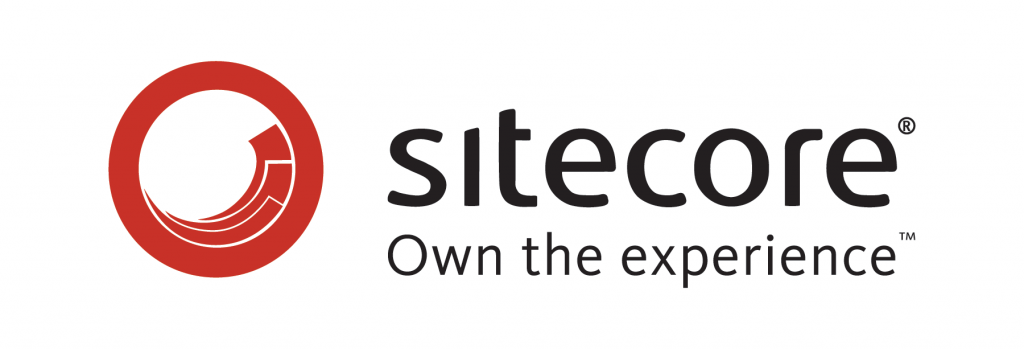
With its flexibility, scalability and enhanced security, Sitecore has become an enterprise favorite, powering tens of thousands of websites Worldwide, by many brands we all know such as EasyJet, Canon, Dyson, Mont Blanc and many others.
Why has it become the choice CMS for so many organisations?
With its speed, flexibility and dependability Sitecore’s architecture is able to meet most business needs. Launched in 2001, Sitecore is a leading enterprise grade content management systems built on ASP.NET, enabling web content editors and marketers to have full control over all aspects of their website from social integration and blog posts to advanced personalisation, eCommerce and more.
The Sitecore CMS offers the power of personalisation and conversation management for marketing teams, and business users. The CMS incorporates a powerful desktop interface that is controlled by a fully-customisable role-based system. The CMS is very user friendly, and intuitive, and developers will find its powerful technology platform and open API architecture provides them flexibility and scalability they crave.
10 key Sitecore features
1) Insights for Website Traffic Conversions
2) Targeted Content Based on User Behaviour
3) Repurposing of Content for Different Devices
4) Third Party Tool Integration
5) Improved Search Engine Optimisation (SEO)
6) Fast Integration with Microsoft Technologies
7) Highly Scalable
8) Intuitive and User-Friendly Design
9) Optimised Web Experience with Multivariate Testing
10) Social Media Integration.
Comparisons, Uses, and Strengths
A conversation we hear often is the possibility of using Sitecore for an intranet or SharePoint for a public-facing website. While the idea of using one technology solution to solve both problems sounds tempting, there are many things you should consider before making a decision. Sitecore excels as a platform to customise the web user experience based on non-authenticated users, it’s a marketing driven platform perfect for sites with an external content focus.
Many companies make SharePoint do the job for them as their platform for public facing websites. Keep in mind however that SharePoint was not developed for such sites so it’s not a natural progression for the platform. Sitecore offers plenty of advantages over SharePoint as a CMS for a public facing website such as:
- Great flexibility for content editors and a logical hierarchical structure
- SharePoint is limited to List Views for content entry
- Sitecore’s Web Forms for Marketers makes building forms and triggering goals simple
- Front end development for SharePoint is restricted and requires a lot of customised work, where as Sitecore on the other hand is free from restrictions and able to do almost anything you want
- Sitecore offers fantastic technical support
- Sitecore offers easy multilingual configuration
- A/B testing is included with Sitecore, which is a must for a modern website. SharePoint does not come with any kind of A/B testing
- Sitecore’s DMS (Digital Marketing Suite) is a marketers dream. SharePoint doesn’t offer anything like this. Any website that has marketing in mind will greatly benefit from this tool included with Sitecore
- Sitecore is developer-friendly, making development, testing, and launch faster and more financially viable
- Sitecore has a clear line between data and presentation making content easier to manage.
We also hear many peoples asking about Umbraco as a solution, sometimes as an alternative to Sitecore. Both Sitecore & Umbraco inter=grate with MS Office, offer near endless expansion possibilities, offer a great GUI, have design layouts that are separated from the content, due to the large open-source Umbraco community and the expert development teams within the Sitecore network both CMS platforms are constantly evolving at a rapid pace, both are easily and highly scalable through Sitecore mobules or packages within Umbraco, can be integrated with ease into third party applications such as ERP tools and CRM systems, and both offer comprehensive online help and support.
However, this is where Sitecore and Umbraco differ:
- Sitecore is an enterprise grade solution, whereas Umbraco is better suited to small-medium sized businesses
- Sitecore is a license-based product. This means a license fee is paid to make use of the CMS, via a series of licensing options making it possible to use Sitecore in a variety of projects from small not for profits, mid sized business sites, up to global enterprises with millions of visits per day.
- Umbraco is an open-source product, meaning there is no license fee
- Sitecore has many government references where Umbraco has almost none;
- Sitecore has an advanced feature set, stronger than that offered by Umbraco
Conclusion
If you are looking for a .NET-based CMS offering fast development time, a stable platform and ease of use for non-technical content creators we strongly recommend Sitecore. Of course, each organisation is unique, and it makes sense to seek the advice of experienced Sitecore Developers to help you select the right platform for your needs.





